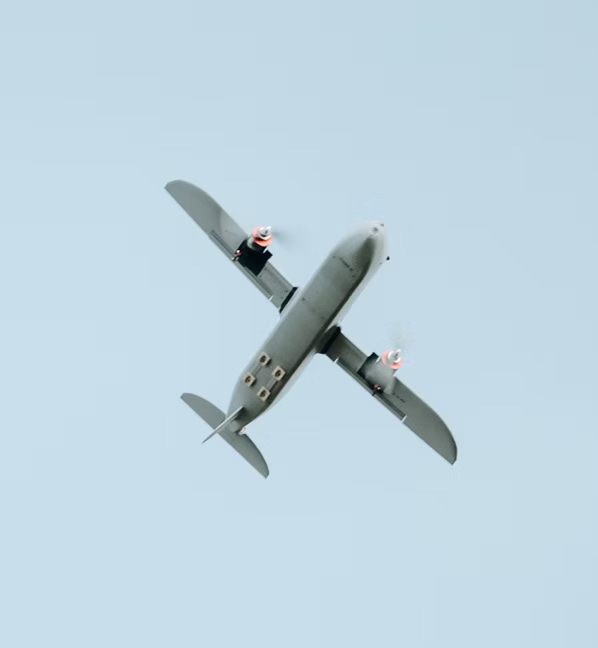Tytan Teams Up With Axon to Build Out Its Drone Wall
Ecosystems are rapidly forming around startups that aim to deliver end-to-end solutions to large defence buyers
There’s been a lot of talk about drone walls in recent months as countries in Europe seek to counter the adversarial threat of Russia, after several of its unmanned aerial vehicles appeared into Western airspace. Now, Tytan Technologies — one of the bigger startups developing these kinetic interceptor defence systems — is announcing a partnership to expand its ecosystem to rise to that challenge.
Munich-based Tytan and Axon division Dedrone said they will collaborate on hardware and software solutions targeting a wider range of UAVs. The deal is significant for a number of reasons:

— Tytan is on the radar. The startup’s services are in demand. Earlier in October, it inked a major deal with the German government, reportedly worth hundreds of millions of euros, which will see Tytan supply the Bundeswehr (Germany’s armed forces) with a kinetic defence system to take down drones. Tytan’s system — comprised of software, ground stations and interceptor drones — targets both UAVs used for reconnaissance and strike drones equipped with weapons.
On the plus side, given drones are only ramping up in usage — deliveries of these, to be deployed in swarms, number in the range of high tens of thousands, hundreds of thousands and multiple millions. On the minus side, Tyton’s initial agreement with the German military covers only “class 2” drones weighing between 150 kg and 600 kg, which brings us to another reason why today’s Dedrone news is significant.
— It’s all about ecosystems. As Dedrone describes the Tytan deal, it will be supplying “AI-powered sensor fusion and technology” that will work with Tytan’s kinetic interceptors. The idea will be to create an end-to-end solution that will cover detect, track, identify and mitigate capability that will be able to target not just group 2, but also groups 1 and 3 drones, covering a wider range of weights and flying altitudes, in line with directives around how to better secure “unified airspace.”
The bigger picture here is that the defence market has been long dominated by legacy, large Prime suppliers. Defence startups, however, are seeing an increasing amount of traction. That’s because, as warfare gets more advanced and technological, these smaller and younger companies are the ones that are building faster and tapping into innovations in areas like AI and hardware development.
But startups are typically only able to address some aspects of a larger solution, so these companies are leaning into building partnerships — larger ecosystems — to present more complete pitch to would-be buyers. This deal between Axon’s Dedrone division and Tytan is an example of that in action.
— Show me the money. One detail about vendor deals is that while they might get announced in public, the solutions typically have yet to be delivered, and payments yet to be received. That means deals can still fall through at the end of the day. One of the fail points for any startup is having the capital to make and maintain a product to meet demand, which begs the question of where Tytan is sitting in terms of its own runway.
To date, it looks like the company has never disclosed how much it has raised according to PitchBook data. Its investor list is small at just six backers, including OTB Ventures, D3 from Ukraine, and Germany’s Magnetic, with the last financing dating to April 2025.
We’ve heard from a couple of sources that the company may have raised (or is raising) more money, and that it may even have a round in progress right now with some significant investors involved. We’ll be reaching out to try to learn more.
We have also asked Axon — the company behind Taser and many other public safety solutions — which is publicly traded in the US with a current market cap of nearly $56 billion, if it might be backing Tytan as a strategic investor given the partnership, and we will update this post as we learn more.
In the meantime, watch this space, and these skies.

